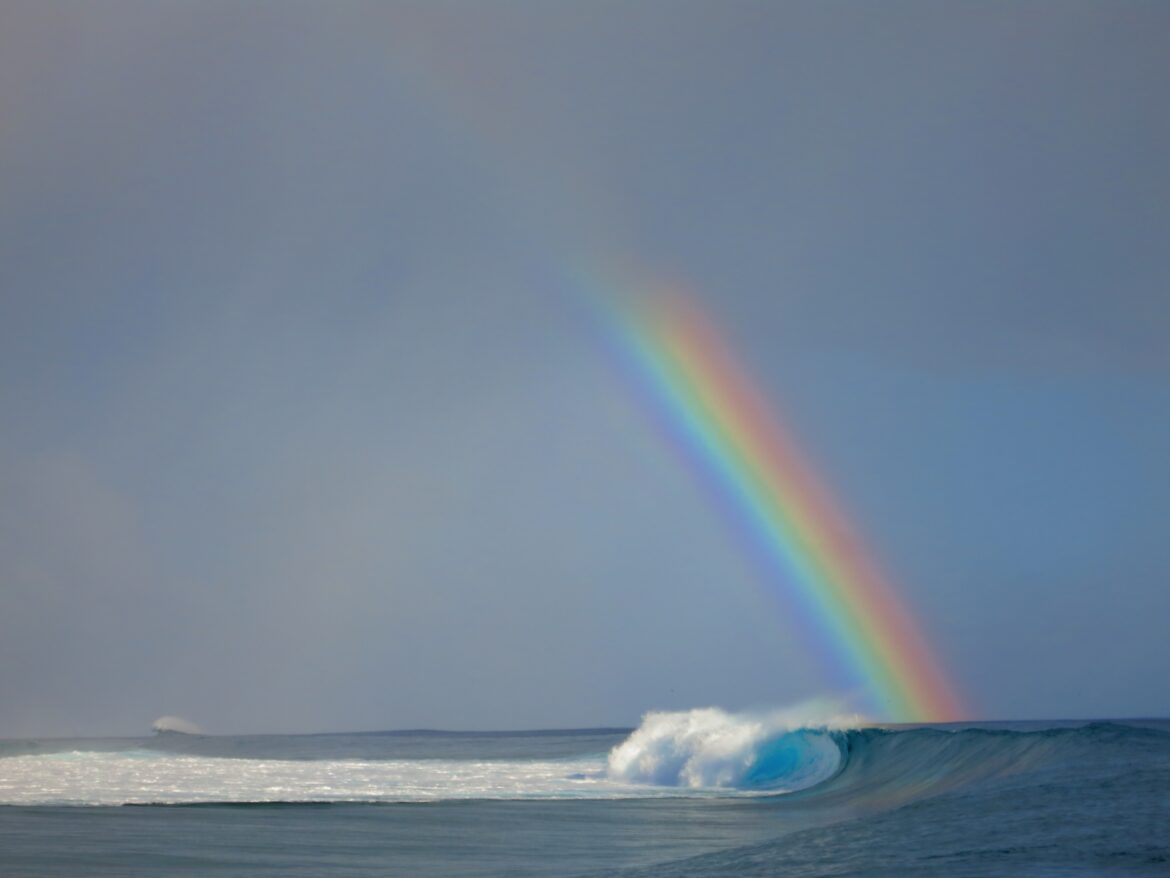The small coastal village of Teahupo’o has long been a reliable and bustling hub for domestic Tahitian and international surfing contests, having hosted the Billabong Pro Tahiti surf competition since 1999. In recent months, Teahupo’o has been experiencing attention from new global spectators as Paris’ Organising Committee for the Olympic Games (OCOG) plans to host the 2024 Olympic surfing competition on Tahiti’s own Teahupo’o wave. Teahupo’o’s waves have been hailed as some of the “most powerful and deadly waves on the planet of surfing,” but Olympic recognition may ultimately work against the well-being of the waves, the reef, and Teahupo’o as a community.
Teahupo’o’s reliable method of judging local and international surf contests consists of constructing a temporary wooden tower and dismantling the structure after every event. Paris’ OCOG plans on replacing this sustainable judging practice with an aluminum judging tower. Although the organizers of the 2024 Games have pledged allegiance to environmental sustainability, the ecological impacts of this new judging tower pose serious threats. Many Tahitian locals have expressed their increasing concern for the undoubted negative effects of the tower, rallying for future generations of Teahupo’o, surfers and watchers alike. The construction of this Olympic judging tower could devastate the surrounding reef and its marine life, subsequently impacting the locals’ ability to continue their sustainable methods of fishing that have long nourished Teahupo’o’s community. Not only does this structure pose ecological detriments to Teahupo’o, but also to the formation of the legendary Teahupo’o wave itself.
In recent months, substantial opposition to Olympic intervention has grown. A local petition to stop the plans for the Olympic judging tower amassed over 100,000 signatures, evidencing the widespread support for the voice of the modest but mighty Teahupo’o community. A Tahitian McGill University student, Mélissa Laine, seconded the discontent with the Paris OCOG’s proposal along with many other members of the Tahitian diaspora. Mélissa offered her perspective on the issue; as some “born and raised” in Tahiti, the potential damage to the reef and marine ecosystem is a “heartbreaking and concerning” matter for Mélissa and many others who have first-hand experience of the “beautiful place” that is Tahiti. As a third-year student majoring in microbiology, Mélissa also has some valuable insight into the biological impacts of the Olympic judging tower. Mélissa stated that the subsequent destruction of the reef would “of course impact marine life, such as a decline in fish abundance as well as biodiversity, which might in turn affect marine food webs.” However, environmental effects would also spread to human life. Levels of a food-borne illness called ‘Ciguatera’, contracted by humans through the consumption of reef fish, will increase drastically and “would, in turn, impact the Tahitian population,” who rely on fish as a source of food and income.
Further questions outside immediate ecological semantics also arise. Could The Parisian OCOG’s dismissal of Tahiti’s plight for Teahupo’o’s well-being be a manifestation of French neo-colonialism? Considering Tahiti’s status as a French Overseas Territory, France’s OCOG could be observed to be exercising neo-colonial power through Tahiti’s international commitments and French administrative control. Such commitments are evidently rooted in the shared colonial history of subjugated Tahiti and colonist France. French anthropologist Bruno Saura elaborated this historical premise in his 2021 book Des Tahitients, des Français (The Tahitians, the French), remarking that “Tahiti continues, partially politically, and certainly economically and culturally, to be a colony.” In Teahupo’o’s case, the 2024 Paris OCOG can be seen to have exercised this ongoing colonial control. By dismissing the certain ecological detriment that the Olympic plans will impose, France’s political priorities are made perfectly clear; to gain favour in the globally prestigious event that is the Olympic Games, France is willing to endanger indigenous ecosystems and the Tahitian way of life in Teahupo’o.
The case of Teahupo’o and the 2024 Paris Olympic Games is not one solely limited to the borders of the competitive sporting world. This conflict of interest is taking place against a backdrop of extensive colonial history, and the importance of situating its existence in the context of neo-colonial dynamics is paramount. Throughout the process of writing this article (late October to early November 2023), the petition to stop the construction of the Olympic judging tower in Teahupo’o has garnered the support of over 158,000 people, a vast number of lives that can no longer be ignored.
Edited by Emma Benoudiz

Amira Berdouk is in her first year at McGill University, currently pursuing a B.A. in East Asian Studies and International Development. Amira is a staff writer at Catalyst and is interested in (neo-) colonialism, political and cultural identity, and independence movements.

